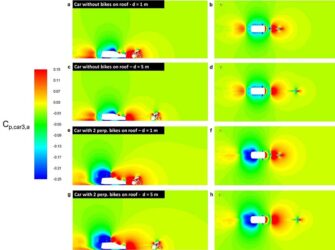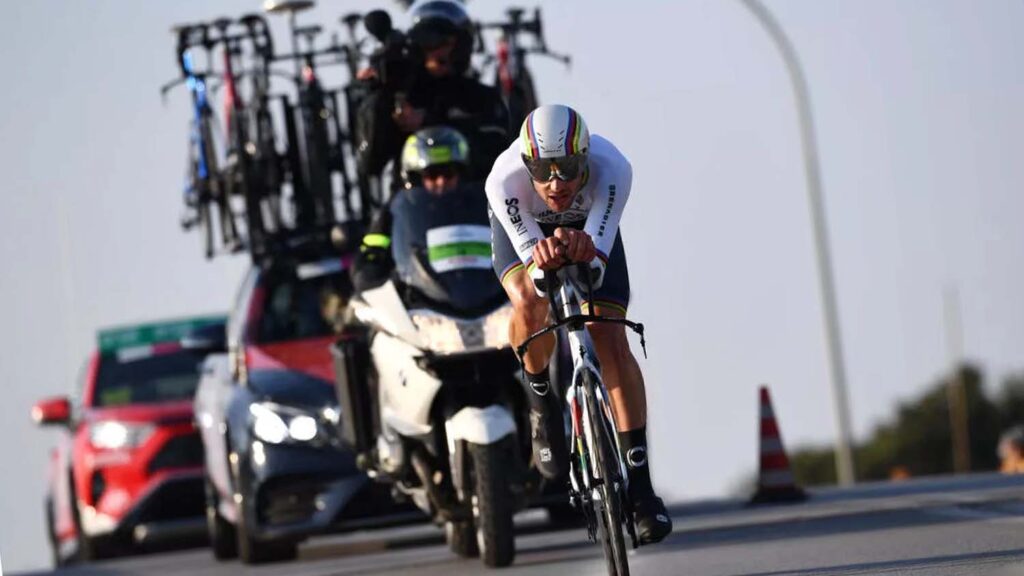A study between Ansys and the University of Leuven has revealed how optimally stacked bicycles on the roof of a team car is capable of saving a race-winning amount of seconds during a Tour de France time trial race.
While it’s been determined that bicycles placed on the roof of team cars (which is a practice approved by the Tour de France organisers) does provide cyclists with some aerodynamic benefit, nobody has ever assessed in detail how much drag reduction is caused by different numbers and configurations of roof-top bicycles.
The effect can be explained by the air mass that is pushed forward by the car body, which generates a large overpressure bubble in front of the car that in turn exerts a significant push effect on the cyclist and allows them to ride faster with the same effort.
 Using Ansys’ simulation technology, researchers were able to determine that two bikes stacked on the roof of a team car, perpendicular to the riding direction and with the face of the rear disk wheels acting as wind blockers, provides the most aerodynamic benefit for the rider.
Using Ansys’ simulation technology, researchers were able to determine that two bikes stacked on the roof of a team car, perpendicular to the riding direction and with the face of the rear disk wheels acting as wind blockers, provides the most aerodynamic benefit for the rider.
To get an idea of the drag reduction and time gained using this configuration, a cyclist trailed by a car with this configuration will experience a 17.1% drag reduction and a 5.7 second time gain, while a cyclist followed by a team car with three bikes will only experience a 15.3% drag reduction and a 5.1 second time gain.
The optimally stacked bicycles could potentially save more than 13 seconds in the 22.4 km Tour de France individual time trial from Passy to Combloux – race winning when compared to the 2022 World Championships race, where the difference between Gold and Bronze was only 9 seconds.
With this research project, KU Leuven and Ansys say they wish to contribute to fairer and safer racing, sending the study to the UCI so that they are informed about these aerodynamic effects and can take appropriate measures.






